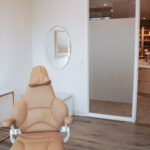Understanding Health Tracking Anxiety: The 12-Year Problem We’re All Facing
Health tracking anxiety is becoming a widespread concern as millions embrace wearable technology. Here’s a sobering fact: In America, we live about 12 years longer than we stay healthy. That means for over a decade at the end of our lives, we’re dealing with chronic diseases, disabilities, or serious health problems that stop us from living our best lives.
This gap between how long we live and how long we feel good has everyone looking for answers. Enter wearable devices, those smartwatches, fitness trackers, and health monitors that promise to help us live better, longer lives. But when does helpful health tracking cross the line into harmful health tracking anxiety that damages our mental wellbeing?
What These Little Devices Can Actually Do
Wearable technology isn’t really new. It’s based on something called biofeedback that doctors have used for decades to help people control things like heart rate and stress. What’s new is having this technology on your wrist 24/7.
Your current smartwatch can already track your heart rate, count your steps, and monitor your sleep. But the technology is advancing fast. Some devices can now detect COVID-19 three days before you feel sick. Researchers at Stanford found that currently, this technology works about 80% of the time.
Other devices, such as continuous glucose monitors, monitor blood sugar in real-time, showing exactly how that slice of pizza affects your body. Then there are the cardio mobile devices that can even spot heart problems before you end up in the hospital.
What’s coming next sounds almost unbelievable.
Researchers are developing clothing with invisible sensors that continuously monitor your health throughout the day. Others are working on skin patches that look like temporary tattoos but measure stress hormones. Companies are creating jewelry that tracks your health while looking completely normal, and headphones that monitor your brain activity and help you focus better. In early 2025, Neurable released headphones that track your focus and attention.
The Dark Side of Perfect Numbers: When Health Tracking Triggers Anxiety
The result is that over one-third of Americans now use devices to track their sleep, hoping to optimize their rest. However, this has created a new problem called “orthosomnia”—becoming so preoccupied with achieving perfect sleep scores that you struggle to sleep well.
Sleep specialists began noticing this in 2017, when patients started showing up at their offices anxious about their tracker data rather than how they actually felt. The competitive aspect doesn’t help either. Celebrities like Gwyneth Paltrow and Kim Kardashian have publicly competed for the highest sleep scores, turning rest into a performance contest.
Here’s what sleep experts want you to know: about half your sleep should naturally be light sleep, and it’s completely normal to wake up briefly during the night. Sleep isn’t supposed to be one solid block. The “scores” these devices give you are basically meaningless. One researcher compared them to horoscopes. Your sleep tracker is only good at telling you when you’re asleep versus awake. The point to remember is that how you feel when you wake up matters way more than any number on your device.
Read more: Understanding technology anxiety is crucial for maintaining healthy relationships with our digital devices.
📱 Struggling with Technology Overwhelm?
If you find yourself constantly checking health apps or feeling anxious about device readings, you’re not alone. Learn evidence-based strategies to develop a healthier relationship with your wearable devices. Discover practical tips for overcoming health anxiety →
Which Devices Actually Work Best
Not all wearables are created equal. When it comes to sleep tracking, multiple studies show that WHOOP comes closest to laboratory equipment for measuring total sleep time and sleep stages, with 99.7% accuracy in measuring heart rate and 99% accuracy in measuring heart rate variability during sleep. Recent research comparing Oura Ring, Fitbit, and other devices shows that the Oura Ring and Fitbit Inspire HR tie for second place, but here’s the reality check: even the best sleep trackers are only about 60% accurate compared to lab equipment.
For overall fitness tracking, the Apple Watch Ultra 2 takes the lead as the most accurate wrist-worn device for heart rate, with studies showing 89-98% of measurements within 5-10 beats per minute of laboratory standards. While Fitbit devices are slightly more accurate for counting steps, the Apple Watch’s heart rate accuracy gives it the overall edge for fitness monitoring.
Serious athletes should consider Garmin devices, which provide the most accurate VO₂ max readings, an important measure of fitness level. Research shows Garmin’s VO2 max estimation is 95% accurate with a margin of error less than 3.5ml/kg/min, while Apple Watch and Fitbit significantly over or underestimate this metric. Garmin’s Fenix series and newer Forerunner models get much closer to laboratory results.
If you’re on a budget, the Fitbit Inspire HR costs just $99 instead of $300 or more for premium devices, and it performs almost as well as the Oura Ring for basic sleep tracking.
💤 Sleep Problems Beyond Technology?
Sometimes sleep issues stem from deeper causes than device obsession. If you’re experiencing persistent sleep difficulties, racing thoughts at bedtime, or daytime fatigue, professional support can help identify the root causes. Learn about breaking the cycle of sleep problems and anxiety →
The Medical Breakthrough That’s Already Happening
While consumer sleep tracking might be overhyped, the medical applications are genuinely revolutionary. Researchers have created wireless sensors so gentle they can monitor premature babies without the typical tangle of wires.
These sensors enable crucial skin-to-skin contact between mothers and babies, work seamlessly with smartphones, and cost a fraction of traditional hospital equipment. They have already been deployed to thousands of patients in developing countries, including Zambia, Ghana, Kenya, India, Pakistan, and Mexico.
The future of personalized medicine looks even more promising. Soon, devices will track stress hormones through your sweat, enabling doctors to determine if mental health treatments are effective. Smart sensors will inform doctors whether you’ve taken your medication and how your body processes it, leading to personalized dosages that work more effectively with fewer side effects. Additionally, researchers are developing devices that analyze breath for signs of cancer and behavioral tracking systems that detect memory changes before they become apparent signs of Alzheimer’s.
![]()
Understanding Health Tracking Anxiety: Why Your Body Isn’t a Machine
Here’s the most important thing to understand: your body is not a car that you can optimize with the right data inputs. Everyone is different, and there’s no “normal” that applies to everyone. What counts as healthy varies dramatically based on your age, genetics, fitness level, medical history, and cultural background.
Read more: When health tracking becomes obsessive, it can contribute to health anxiety, a condition where normal bodily sensations trigger intense worry and fear.
Ironically, obsessing over health metrics can create the very problems you’re trying to prevent. When you stress about sleep scores, your body activates its stress response, which keeps you awake longer. The same pattern happens with other metrics. Constant monitoring can become a source of chronic stress that undermines the health you’re trying to optimize.
🧠 Is Perfectionism Driving Your Health Anxiety?
The need to achieve “perfect” health metrics often masks deeper psychological patterns. Understanding these patterns is the first step toward healthier habits. Explore how therapy can help you develop balanced self-awareness →
Internal Link: This cycle mirrors patterns seen in other anxiety disorders, where attempts to control uncertainty actually increase distress.
Your Data, Their Business: Privacy Concerns
Like many health apps, wearables raise serious privacy concerns. Many health apps don’t fall under HIPAA privacy laws that protect medical information. Less than half of mental health apps have privacy policies, and some make it difficult to cancel subscriptions or use aggressive marketing tactics.
The data collected is incredibly intimate, including sleep patterns, heart rate, location, and potentially stress hormones and brain activity. Most wearable features fall into regulatory gray areas where oversight is minimal, and you often have little control over how your data is used or whether it’s shared with third parties.
How to Overcome Health Tracking Anxiety: Using Wearables Without Losing Your Mind
Wearables work best when used as:
- Awareness tools that help you notice patterns over weeks and months
- Educational aids that teach you about your body’s responses
- Motivation boosters for positive changes
- Early warning systems for significant health changes
They work poorly when you:
- Obsess over daily numbers that naturally fluctuate
- Ignore how you feel in favor of device readings
- Compete with others on arbitrary scores
- Let devices dictate your mood or self-worth
Focus on trends rather than daily numbers by looking at patterns over weeks and months. Trust your body when it conflicts with your device. If you feel rested but your device says you slept poorly, trust your feelings.
Read more: Learning healthy sleep habits can be more effective than obsessing over tracking data.
Take regular breaks from monitoring to maintain body awareness. Remember that consumer devices measure approximations, not exact biological processes. Use concerning patterns as reasons to see a doctor, not to diagnose yourself. And always understand what data you’re sharing and with whom.
⚖️ Finding Balance in a Data-Driven World
Technology can be a powerful tool for wellness, but it works best when combined with human wisdom and professional guidance. Learn how to integrate digital tools mindfully into your health routine. Discover technology’s role in modern therapy and wellness →
The Bottom Line: Technology Meets Wisdom
Wearable technology has real potential to revolutionize healthcare and help us live healthier lives. The ability to detect infections before symptoms appear, monitor chronic conditions, and personalize treatments could transform medicine. But we need to be smart about it.
The same devices that could save lives through early detection could also create new forms of anxiety and social pressure around health metrics. We still need long-term studies on the psychological effects of constant health monitoring, clear regulations that distinguish between medical devices and wellness gadgets, transparency about how companies use our data, and education programs that help people understand both the capabilities and limitations of these devices.
Internal Link: If you’re struggling with technology and mental health issues, professional support can help you develop a healthier relationship with digital wellness tools.
Your body evolved sophisticated internal monitoring systems over millions of years. You can sense fatigue, hunger, stress, and illness through countless subtle signals. Technology can enhance this natural wisdom, but it should never replace it.
🌱 Ready to Trust Your Body Again?
Your intuition and body awareness are powerful health tools that no device can replace. Sometimes we need support to reconnect with these natural signals and develop self-compassion in our wellness journey. Find a therapist who can help you develop healthy coping strategies →
Optimal health isn’t about achieving perfect metrics. It’s about feeling good, functioning well, and having the energy to live fully. The best wearable device is one that helps you better understand and care for your body while still trusting your own experience of being human.
Internal Link: When health tracking creates distress, therapy approaches can help you regain perspective and develop healthier coping strategies.
Use these remarkable tools wisely, but never forget: you’re not a machine to be optimized, but a human being to be understood, respected, and cared for. True wellness comes from the complex interplay of physical, mental, emotional, and social factors that no device can fully capture or optimize. Let technology guide you, but let wisdom lead the way.
FAQ Section
Q: What is orthosomnia and how do I know if I have it? A: Orthosomnia is an unhealthy obsession with achieving perfect sleep scores from tracking devices. Signs include checking sleep data first thing in the morning, feeling anxious about tracker readings, and making major life changes based on device metrics rather than how you actually feel.
Q: Are fitness trackers and sleep monitors accurate? A: Consumer sleep trackers are only about 60% accurate compared to lab equipment. Even the best devices like WHOOP and Oura Ring have limitations. They’re better for tracking trends over time rather than precise daily measurements.
Q: Can health tracking devices detect serious medical conditions? A: Some advanced devices show promise. Stanford research found that smartwatches can detect COVID-19 about 80% of the time, often 3 days before symptoms appear. However, consumer devices should supplement, not replace, professional medical care.
Q: How can I use health tracking devices in a healthy way? A: Focus on long-term trends rather than daily scores, trust your body’s signals over device readings, take regular breaks from tracking, and remember that how you feel matters more than any number on a screen.
Q: Should I stop using my fitness tracker if it causes anxiety? A: Not necessarily. Try adjusting your relationship with the device, check data less frequently, focus on trends rather than daily numbers, and consider taking breaks. If anxiety persists, speaking with a therapist can help develop healthier technology habits.
Q: What should I do if health tracking is affecting my sleep? A: Stop checking the device at night or first thing in the morning, focus on sleep hygiene practices rather than scores, and remember that feeling rested is more important than achieving perfect metrics. Consider consulting a sleep specialist if problems persist.
Ready to Develop a Healthier Relationship with Technology?
If you’re struggling with health tracking obsession, technology anxiety, or finding that your devices are creating more stress than peace of mind, you don’t have to figure it out alone.
Take Action Today:
- Find a therapist specializing in anxiety disorders through our therapist directory
- Learn about telehealth options for convenient, accessible mental health support
- Explore evidence-based approaches like Cognitive Behavioral Therapy (CBT) for health anxiety
Remember: True wellness isn’t about perfect numbers, it’s about feeling empowered, balanced, and at peace with your body and mind. Professional support can help you harness the benefits of health technology while protecting your mental wellbeing.
Start your journey toward balanced digital wellness today.
The preceding article was solely written by the author named above. Any views and opinions expressed are not necessarily shared by GoodTherapy.org. Questions or concerns about the preceding article can be directed to the author or posted as a comment below.









